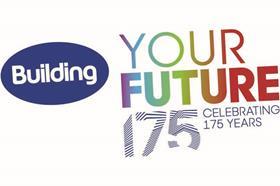We ask readers to share their visions of the construction industry in 25 years’ time. Here, Martin Knight hopes infrastructure will be focused more around design



Nowadays, it seems clear that the bigger the infrastructure project, the greater the need to demonstrate benefit to society and for value to be added beyond base metrics to achieve lasting social, economic and environmental benefits. Sadly, often the opposite is true, with projects following a banal, linear process, focused on “delivery” – while “design” is limited to superficial window-dressing where architects or landscape architects are briefly introduced to “mitigate” the effects of narrow thinking or to “sell” a scheme to a design review panel.
Even that limited role is omitted where no need is perceived, resulting in an increasing quality gulf between different areas, fuelling disparities in land values, health and social mobility and causing greater daily movements of people and higher demand on transport infrastructure. This is a costly, self-destructive cycle.
In considering design, the scenario is often: ‘too early… too early … whoops – too late’
In considering design at the planning, procurement and delivery phases, the scenario is often: “too early … too early … whoops – too late”. Yet it would take relatively few, high-profile projects to create change in the mindset of clients and their consultants for good.
Greater ambition from government (via the National Infrastructure Commission) and stronger leadership from executive clients (including Highways England, Network Rail and HS2) to demand, define and secure high-quality design before projects are granted planning permission – which is used to endorse and enforce it through contractual obligations on designers, whether they work for clients or contractors – could bring radical, lasting improvements. By returning design to the forefront, visionary infrastructure projects can redefine outcomes for people and ensure our built legacy is celebrated by future generations.
Do you have a Thought for Tomorrow? Just send your name, job title and company, and 250 words to building@building.co.uk, with the heading “Building Your Future”, answering these questions:
- What would you like the construction industry to look like in 25 years’ time?
- And what needs to change to make that happen?
Postscript
Martin Knight is managing director of Knight Architects


























No comments yet